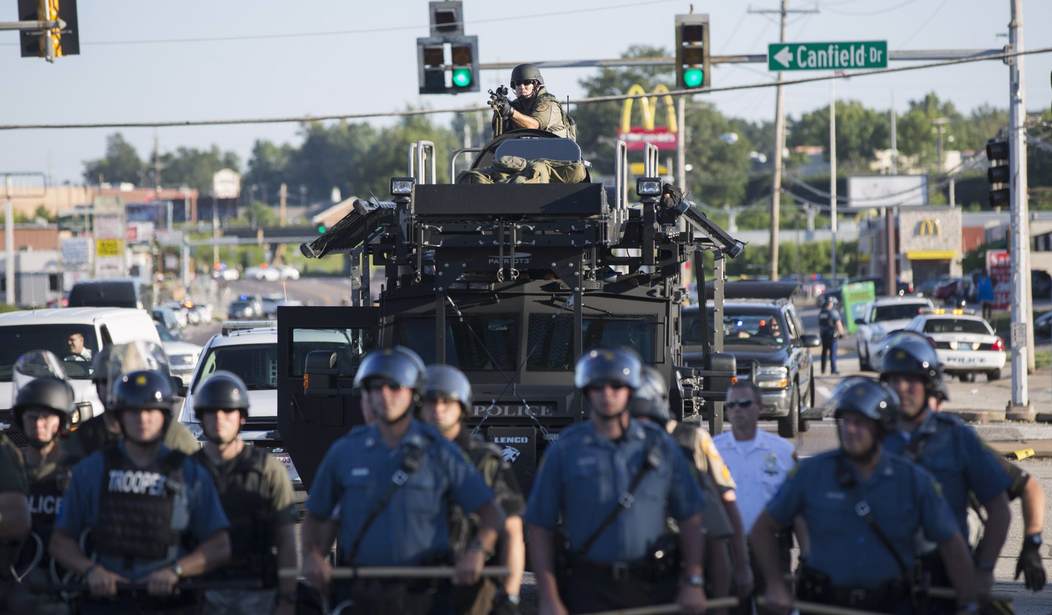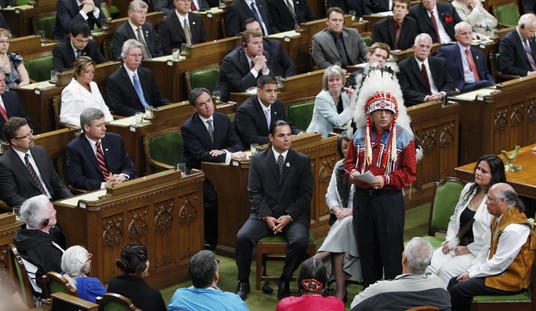WASHINGTON — President Obama promised that his initiatives to try to mend fences between police and minority communities will actually show results because he cares about the cause.
Obama held a series of meetings with mayors, law enforcement, civil rights groups, community leaders and youths today, vowing to explore best policing practices in a process that’s “not going to be an endless report that ends up collecting dust on a shelf.”
He recently received a requested report on surplus military equipment sold to local police departments, and will be signing an executive order “that specifies how we are going to make sure that that program is accountable, how we’re going to make sure that that program is transparent, and how are we going to make sure that we’re not building a militarized culture inside our local law enforcement.”
Obama also plans to propose “some new community policing initiatives that will significantly expand funding and training for local law enforcement, including up to 50,000 additional body-worn cameras for law enforcement agencies.”
“And I look forward to working with Congress to make sure that in addition to what I can do administratively and with resources that we’ve already got, that we are in a conversation with law enforcement that wants to do the right thing, to make sure that they’re adequately resourced for the training and the technology that can enhance trust between communities and police,” he said.
Attorney General Eric Holder “is going to be working in parallel with the task force to convene a series of these meetings all across the country because this is not a problem simply of Ferguson, Missouri,” Obama said. Holder was sent on to Atlanta to deliver remarks on race at a community meeting tonight at the historic Ebenezer Baptist Church.
“This is a problem that is national. It is a solvable problem, but it’s one that unfortunately spikes after one event, and then fades into the background until something else happens,” the president continued. “What we need is a sustained conversation in which in each region of the country people are talking about this honestly and then can move forward in a constructive fashion.”
“…There have been task forces. There have been conversations. And nothing happens. What I try to describe to people is why this time will be different. And part of the reason this time will be different is because the president of the United States is deeply invested in making sure that this time is different.”
Obama said that when he heard stories from the youths about interactions with police, “it violates my belief in what America can be to hear young people feeling marginalized and distrustful even after they’ve done everything right.”
“That’s not who we are. And I don’t think that’s who the overwhelming majority of Americans want us to be. And I think there may be a convergence here where we’ve got outstanding law enforcement officials who recognize that times have changed and want to be responsive.”
He vowed that in his last two years in office he’d “make sure that we follow through, not to solve every problem, not to tear down every barrier of mistrust that may exist, but to make things better.”
Around the table with the president at the Eisenhower Executive Office Building, according to the White House, were five mayors: Tom Barrett of Milwaukee, Bill de Blasio of New York, Karen Freeman-Wilson of Gary, Ind., Michael Nutter of Philadelphia, and Martin Walsh of Boston.
Administration participants included Vice President Joe Biden, senior adviser Valerie Jarrett, and Office of Management and Budget Director Shaun Donovan.
Civil rights organizations represented at the meeting included the NAACP, the Advancement Project, the Urban League, La Raza, Al Sharpton’s National Action Network, and the ACLU. A handful of faith leaders also took part.
The report on police using military equipment found “a lack of consistency in how federal programs are structured, implemented and audited,” but White House press secretary Josh Earnest said the administration still supports the concept of giving police surplus vehicles and weapons to help combat modern threats.
“In many cases, these programs actually serve a very useful purpose,” Earnest told reporters today. “…The best, I think, and probably most high-profile example that comes to mind is the use by the Boston Police Department of some military equipment in their response to the Boston bombing. That was equipment that was properly used and was done in a way that would both protect the community, but also protect the law enforcement officers that were responding to the situation.”
Rep. Hank Johnson (D-Ga.) applauded Obama for “bold action,” but said his Stop Militarizing Law Enforcement Act of 2014, a bill introduced with Rep. Raul Labrador (R-Idaho), is still needed. While the administration report included some key elements of the bill, it left out provisions that would make some types of military equipment off-limits to law enforcement and would try to solve the problem of missing inventory.
“I’m also sending a letter to the Department of Justice today to discuss the role the DOJ plays in the training, monitoring, and controlling SWAT officers and the use of militarized equipment by local law enforcement and SWAT officers,” Johnson said.
Rep. Wm. Lacy Clay (D-Mo.), whose district includes Ferguson, said the $75 million matching funds proposed by the president for officer body cameras “would not only establish real transparency when force is used during a police incident, it would also substantiate the fact that the vast majority of police officers carry out their duties with bravery and integrity.”
Clay said some of the problems with surplus military equipment going to police agencies include inadequate training in using the equipment and little oversight over how the surplus materials are used.
“This past August, I personally witnessed thousands of my unarmed constituents who, while peacefully exercising their constitutional rights, were targeted by local police wielding military sniper rifles equipped with night-vision scopes,” the congressman said. “That should not happen in America.”
And even though Jesse Jackson is personally asking Obama to come to Ferguson, Earnest insisted it’s still not on the agenda. The White House also wants to keep the focus on the community policing and police militarization aspects.
“The underlying issues here are broader than just race. That this goes to sort of the foundational relationship, again, between law enforcement agencies and the communities that they’re sworn to serve and to protect,” Earnest said.
“Surely, discussions of race are an important part of that relationship. There’s no doubt about that. But it’s more than just that. And that means that there is more that we can do to try to address some of these underlying problems.”









Join the conversation as a VIP Member